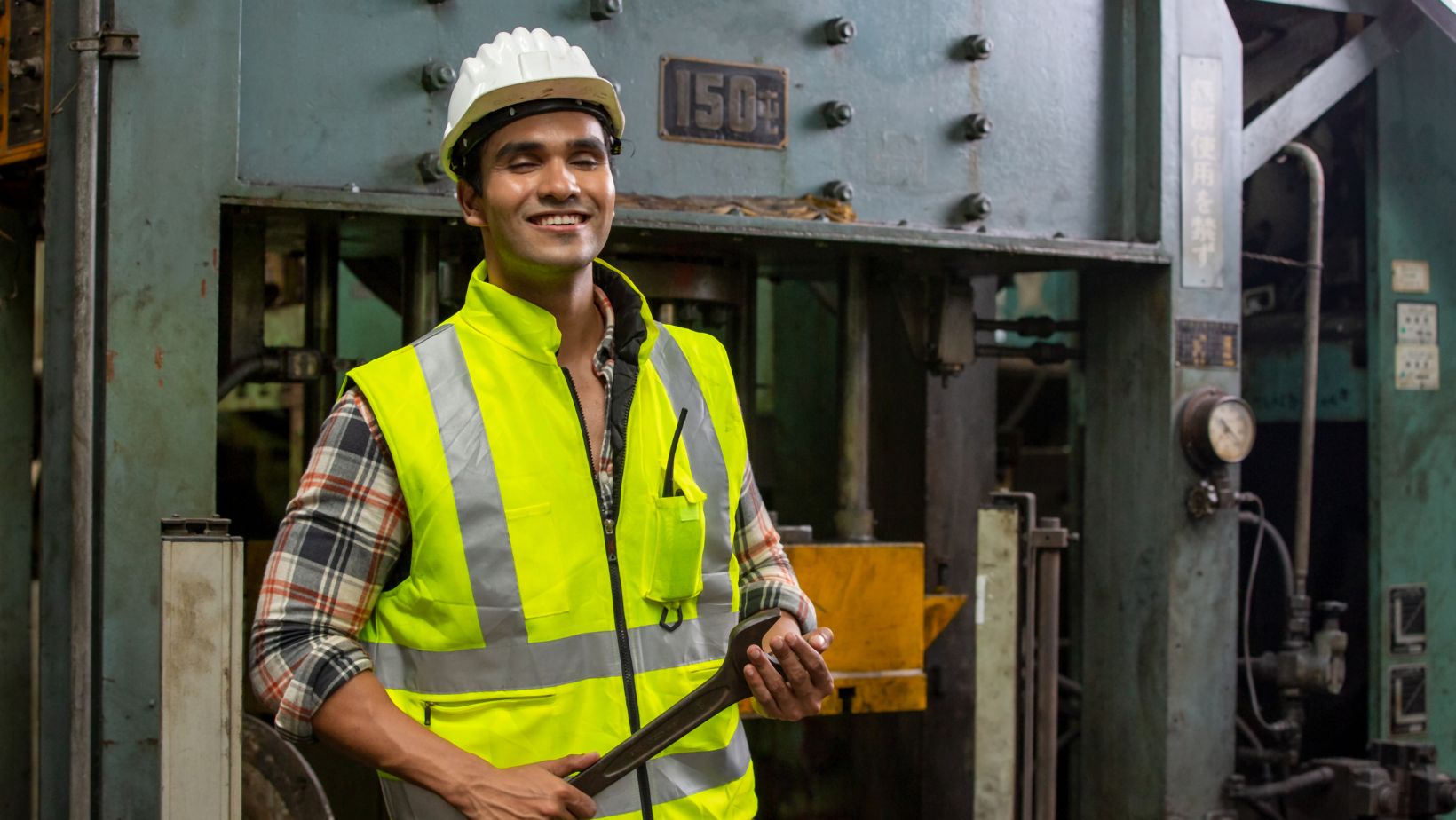Key Takeaways
- Role Definition: Mechanical technicians are vital professionals in engineering and manufacturing, responsible for ensuring the functionality and efficiency of mechanical systems.
- Key Responsibilities: Their main tasks include troubleshooting machinery, conducting routine maintenance, assembling components, performing tests, and maintaining thorough documentation of activities.
- Skills Required: Essential skills for mechanical technicians encompass mechanical proficiency, analytical and problem-solving abilities, electrical knowledge, and strong communication skills.
- Industry Demand: The demand for skilled mechanical technicians is growing across various sectors, including manufacturing, automotive, aerospace, HVAC, and energy.
- Career Advancement: Opportunities for career growth include specializing in specific areas, moving into supervisory roles, pursuing engineering positions, obtaining certifications, or furthering education in engineering or technology.
Mechanical technicians play a crucial role in the engineering and manufacturing sectors. They’re the hands-on professionals who ensure that mechanical systems function efficiently and effectively. From troubleshooting machinery to performing routine maintenance, their expertise helps keep operations running smoothly.
In a world increasingly reliant on technology, the demand for skilled mechanical technicians continues to rise. They work with a variety of tools and equipment, applying their knowledge of mechanics and engineering principles to solve complex problems. Understanding what a mechanical technician does not only highlights their importance but also opens the door to a rewarding career path for those interested in the mechanics of the modern world.
What Does a Mechanical Technician Do
Mechanical technicians play a crucial role in engineering and manufacturing industries. They specialize in assisting engineers in developing, testing, and maintaining mechanical systems and equipment. Key tasks include assembling components, conducting tests, and diagnosing equipment failures.
Mechanical technicians are responsible for various essential functions:
- Troubleshooting: They identify and resolve mechanical issues in machinery and equipment. Observations during operation guide quick diagnosis.
- Maintenance: They perform regular maintenance on machines to ensure optimal performance. Scheduled upkeep reduces downtime and enhances efficiency.
- Assembly and Installation: They assemble mechanical components based on technical specifications. Accurate installation of parts is vital for overall machinery function.
- Testing and Evaluation: They conduct tests to assess machinery performance. They gather data, analyze outcomes, and adjust operations as needed.
- Documentation: They maintain detailed records of maintenance activities and equipment specifications. Clear documentation ensures compliance and assists future troubleshooting efforts.
Mechanical technicians often work in diverse fields, including manufacturing, automotive, aerospace, and HVAC (heating, ventilation, and air conditioning). Their skill set supports various job functions, making them valuable assets to organizations. The demand for skilled technicians continues to rise, driven by advancements in technology and the need for advanced mechanical systems.
Key Responsibilities of Mechanical Technicians

Mechanical technicians play a crucial role in maintaining and optimizing machinery. Their responsibilities encompass various tasks vital for the seamless operation of mechanical systems.
Equipment Maintenance
Mechanical technicians perform regular maintenance on machinery and equipment. They inspect components for wear and tear, replace parts as needed, and ensure systems operate within specifications. They utilize tools like wrenches, gauges, and multimeters to maintain equipment efficiency and reliability.
Troubleshooting and Repair
Mechanical technicians diagnose equipment failures swiftly and accurately. They analyze malfunctioning machinery to identify issues and implement effective repair strategies. Technicians often collaborate with engineers to develop solutions that enhance performance and safety.
Technical Documentation
Mechanical technicians maintain detailed records of maintenance activities and repairs. They document inspection results, repairs performed, and parts replaced, ensuring compliance with industry regulations. This documentation serves as a crucial reference for future maintenance and troubleshooting efforts.
Skills Required for Mechanical Technicians
Mechanical technicians require a combination of technical and soft skills to excel in their roles. These competencies enable them to troubleshoot effectively, collaborate with engineers, and maintain complex machinery.
Technical Skills
- Mechanical Proficiency: Mechanical technicians must understand mechanical systems, including engines, pumps, and hydraulics. This knowledge aids in diagnosing and repairing equipment.
- Analytical Skills: Strong analytical abilities are essential for identifying problems in mechanical systems. Technicians evaluate complex issues and determine appropriate solutions.
- Machining Skills: Familiarity with machining tools and techniques helps technicians fabricate and modify components safely and efficiently.
- Electrical Knowledge: An understanding of electrical systems and components boosts a technician’s ability to troubleshoot machinery that relies on electrical power.
- Computer Skills: Proficiency in computer-aided design (CAD) software and maintenance management systems streamlines documentation and design processes.
- Safety Awareness: Knowledge of safety protocols ensures adherence to industry standards, reducing the risk of accidents while performing maintenance and repairs.
- Communication Skills: Clear communication promotes effective collaboration with team members and engineers, aiding in the smooth operation of projects.
- Problem-Solving Abilities: Strong problem-solving skills allow technicians to address challenges promptly, minimizing downtime and ensuring efficient operation.
- Attention to Detail: A meticulous approach helps technicians spot issues that may go unnoticed, ensuring comprehensive inspections and maintenance activities.
- Time Management: Effective time management skills enable technicians to prioritize tasks and meet deadlines consistently, maintaining productivity.
- Teamwork: The ability to work well within a team is crucial in coordinating efforts with other professionals to complete projects successfully.
- Adaptability: Mechanical technicians face rapidly changing technologies. Flexibility and adaptability ensure they stay current with industry advancements and methods.
Career Paths and Opportunities

A variety of industries rely on mechanical technicians for their expertise. The demand for skilled technicians creates numerous career advancement opportunities.
Industries Employing Mechanical Technicians
Mechanical technicians find employment across several key industries, including:
- Manufacturing: They work on assembly lines, ensuring machinery operates efficiently and safely.
- Automotive: Technicians maintain and repair vehicles, addressing mechanical, electrical, and hydraulic systems.
- Aerospace: They support aerospace engineers by testing and maintaining aircraft components and systems.
- HVAC: Technicians install, repair, and maintain heating, ventilation, and air conditioning systems in residential and commercial buildings.
- Energy: They assist in the operation and maintenance of power generation equipment, including renewable energy systems.
- Specialization: Focusing on areas like robotics, automation, or HVAC enhances expertise and marketability.
- Supervisory Roles: Taking on leadership positions involves overseeing teams and improving operational workflows.
- Engineering Positions: Technicians with additional education may transition into engineering roles, designing and developing mechanical systems.
- Certification Programs: Completing certifications, such as those from the National Institute for Certification in Engineering Technologies (NICET), provides credibility and opens doors to higher-level positions.
- Further Education: Pursuing an associate’s or bachelor’s degree in engineering or technology broadens career prospects and increases earning potential.
Mechanical Systems
Mechanical technicians play a crucial role in the efficiency and reliability of mechanical systems across various industries. Their expertise in troubleshooting and maintaining machinery not only enhances operational performance but also ensures safety and compliance with industry standards.
With a blend of technical and soft skills, these professionals are well-equipped to tackle challenges and collaborate effectively with engineers. As technology continues to evolve, the demand for skilled mechanical technicians is set to rise, offering numerous career advancement opportunities.
By pursuing certifications and further education, individuals can unlock their potential and contribute significantly to the ever-growing field of mechanics.

